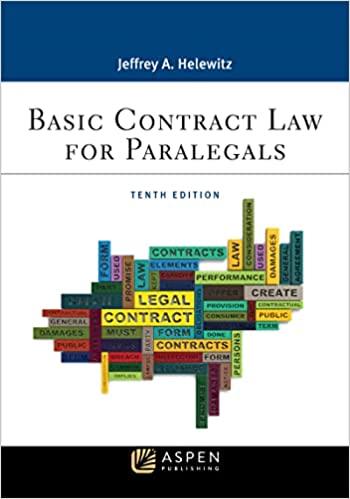Question
The Stonehouse Hotel Inc. was offered for sale, and several interested parties agreed to purchase the company by a share purchase. The agreement called for
The Stonehouse Hotel Inc. was offered for sale, and several interested parties agreed to purchase the company by a share purchase. The agreement called for a mortgage to be placed on the hotel and the proceeds used to pay for the shares. The lawyers who acted for the purchasers arranged with a local trust company for the mortgage to be placed on the hotel. The trust company then asked the lawyers to act on behalf of the trust company to register the mortgage after examining the title to the property to ensure that the trust company had a good first mortgage. The lawyers did so and, after registering the mortgage, wrote a letter to the trust company in which they certified that the trust company had a good and valid first mortgage on the hotel property. A few years later, Stonehouse Hotel Inc. ran into financial difficulty, and the mortgage went into default. The trust company attempted to foreclose on the mortgage, at which time it discovered that the mortgage was void. Under the companies act of the province, a company was not allowed to mortgage its property for a share purchase and any mortgage used for this purpose was void. When the trust company made this discovery, it decided to look to its lawyer for compensation for their error in overlooking the restriction in the companies act. What would be the basis for their claim? What defences, if any, could the lawyers raise? How might the courts decide?
Step by Step Solution
There are 3 Steps involved in it
Step: 1

Get Instant Access to Expert-Tailored Solutions
See step-by-step solutions with expert insights and AI powered tools for academic success
Step: 2

Step: 3

Ace Your Homework with AI
Get the answers you need in no time with our AI-driven, step-by-step assistance
Get Started


